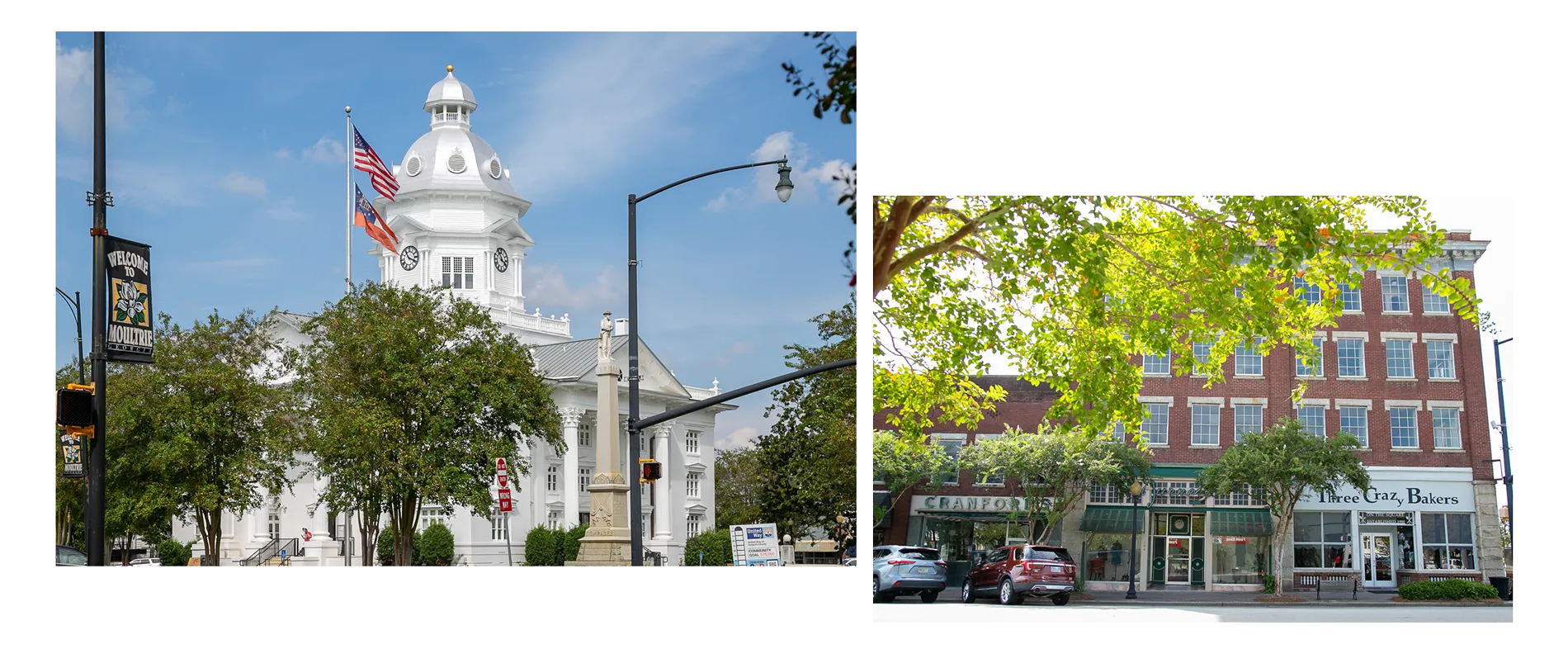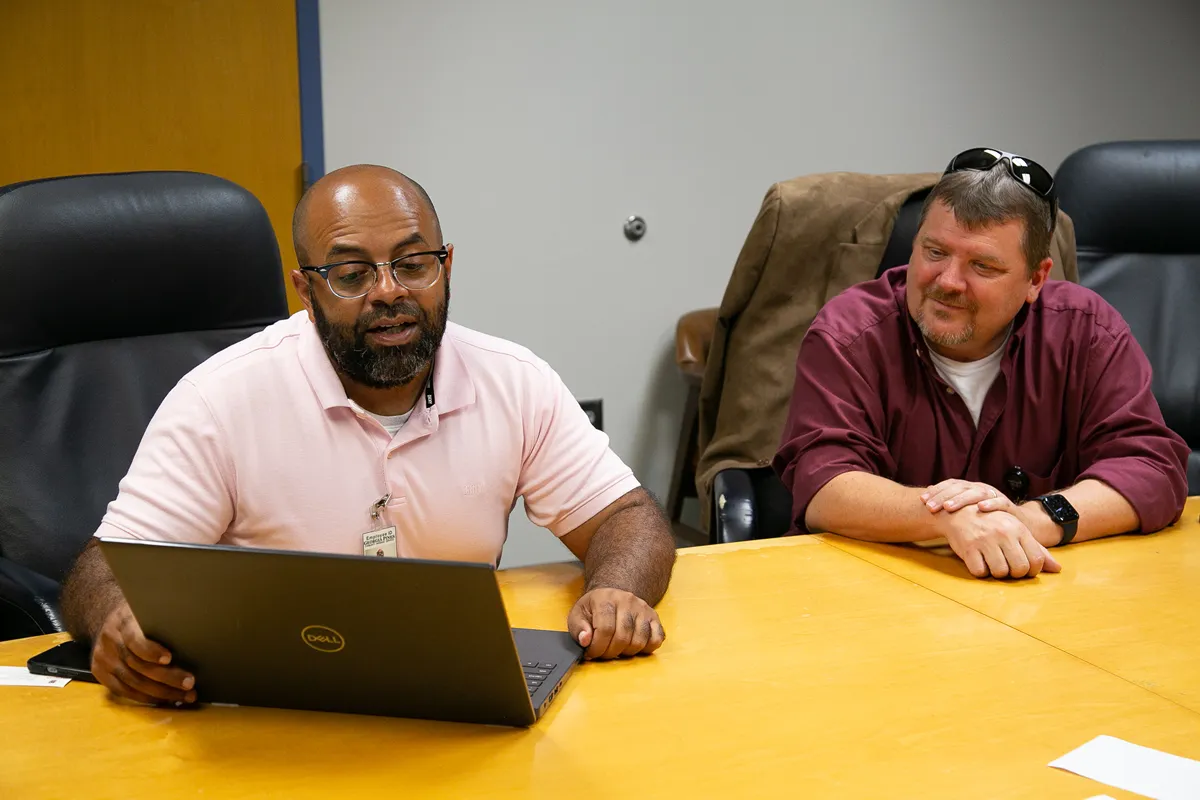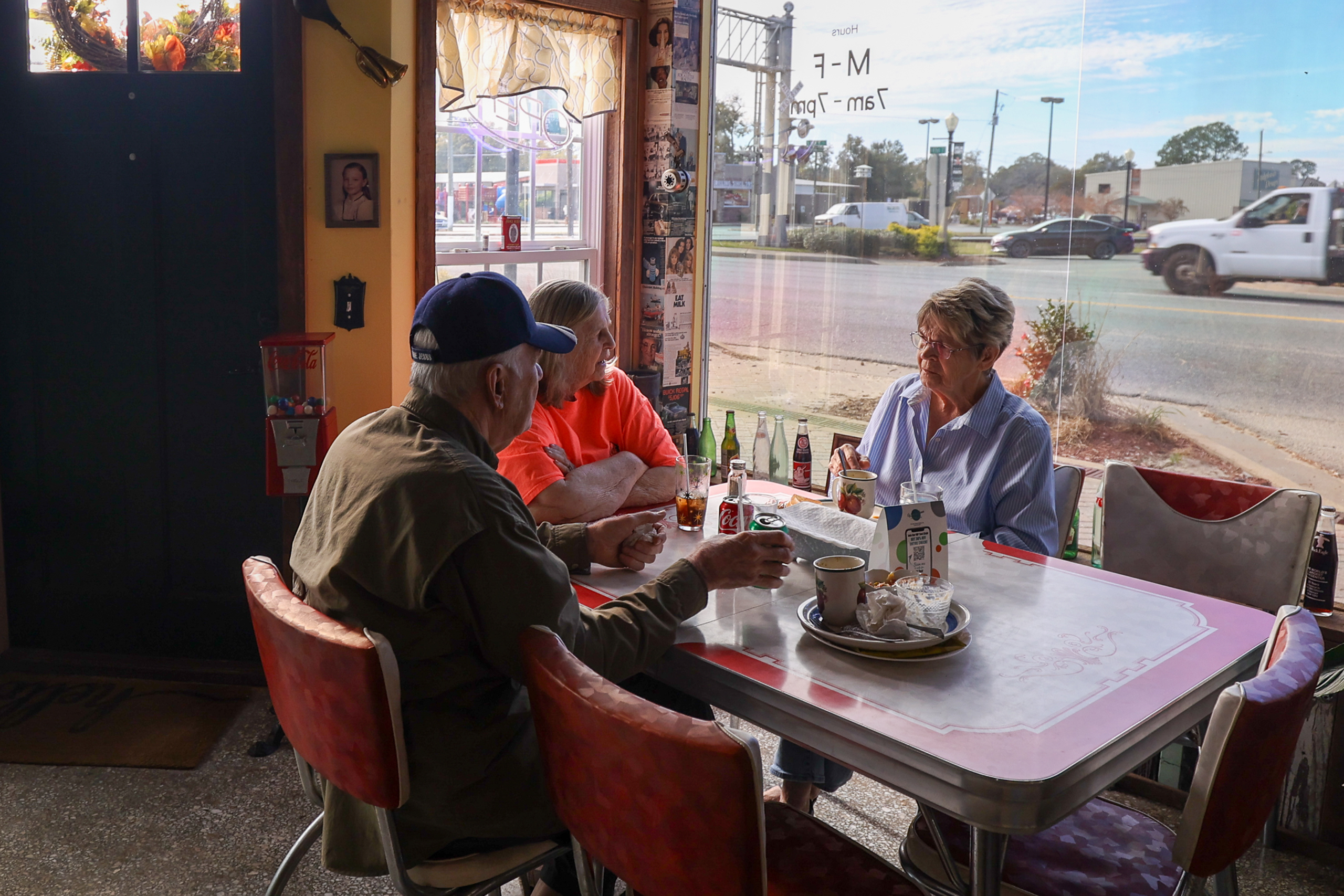Better Policing
Every police officer knows that on some calls, it’s good to have backup. But that doesn’t always mean another armed officer.
For some mental health-related calls, Officer Tonero Bender with the Moultrie Police Department brings a different kind of partner: Julio Ginel, a licensed clinical social worker.
“In every way, this is a tremendous success.”
– Chad Castleberry, Moultrie Police Chief
The “co-responder program,” implemented in 2022, has resulted in fewer arrests and more patients going to mental health and substance abuse treatment instead. New data from the UGA Institute of Government show the program also provides an economic benefit for the community to the tune of an estimated $600,000 (an estimation of savings from diverted jail bookings and mental health-related emergency room visits).
“These are savings we can invest into our community to make it a safer place to live, work, and play,” says Moultrie Police Chief Chad Castleberry. “In every way, this is a tremendous success.”

The Moultrie co-responder program arose from an increase in mental health and substance abuse-related calls in the area. Officer Bender observed that these calls would often end in arrests and created a revolving door of jail time but no treatment for the underlying issues. Bender reached out to the UGA Archway Partnership for help.
To address the challenge, the police department, Archway Partnership, and the city of Moultrie joined forces with Georgia Pines, a community service board set up by the state to help people with mental health issues, developmental disabilities, or substance abuse.
Approaching the Problem
The first step was bringing in Terry College of Business students to study the situation and, after accompanying MPD on patrol, collecting arrest data and assessing mental health resources, the student team suggested the co-responder model that was piloted in Athens in 2017.
Caleb Snead, a health promotions major and Public Service and Outreach student scholar, continued the research during his internship at Archway and later as a graduate assistant in the UGA College of Public Health. He collected best practices for co-responder programs from the Athens-Clarke County Police Department, the Centers for Disease Control and Prevention, and the Georgia Department of Public Health.
Bringing more mental health support to Moultrie was the next crucial step. The Archway Partnership helped the city acquire a building adjacent to the police station that could house Georgia Pines, allowing the organization to work more closely with law enforcement.
“Not only is this program paying dividends for law enforcement resources, but it has also led to the deepening of relationships across the community, and we have been able to expand to other programs,” says Robert Hurn, CEO of Georgia Pines. “We now have partnerships that everybody agrees are going well, and success begets more success.”

Compassion and Cost Saving
The success of the collaboration garnered for UGA the C. Peter Magrath Award for Community Engagement, the highest award from the Association of Public and Land-grant Universities.
The program is still going strong. Castleberry became chief of the Moultrie Police in 2024 and supports the program and efforts to measure its effectiveness. The results speak for themselves: improved interactions between officers and the people they serve, extra help for marginalized communities, and more compassion for people suffering a mental health crisis.
“It truly is astounding the value the co-responder unit brings to our service deliveries,” Castleberry says.
Julio Ginel, the clinical worker who goes on calls, says everyone involved can take pride in these outcomes.
“It is a reminder,” he says, “that the ripple that I make in a lake eventually turns into a monsoon.”
Written by: Baker Owens


